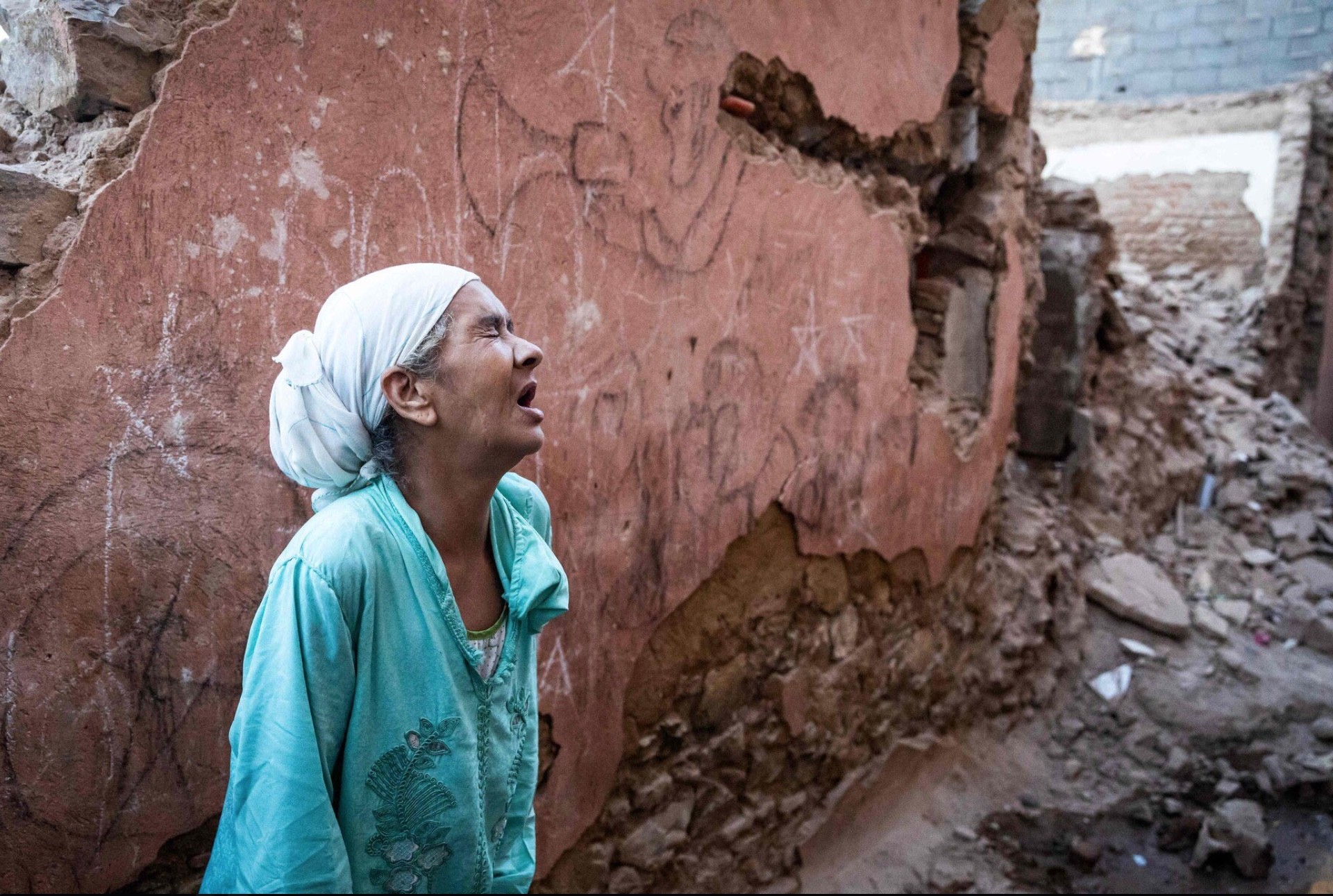In Marrakech, Morocco, a significant number of people found themselves once again sleeping on makeshift beds and in tents along the streets overnight. Some did so out of fear that new tremors might occur, while others had lost the roofs over their heads due to the recent earthquake. In the hardest-hit villages, the local residents are grieving the loss of many of their neighbors and friends, as reported by BBC journalists who were among the first foreign correspondents to arrive on the scene. According to seismologists, the earthquake that struck on Friday was the most powerful one to hit Morocco in a century. As of Saturday evening, authorities have recorded over 2,000 deaths and approximately the same number of injuried. However, it is expected that the death toll will continue to rise.
“We’ve been working tirelessly since the event occurred. There are only ten of us trying to locate survivors in the collapsed buildings; it’s a dire situation,” said Mohamed, describing conditions in a village situated in the Greater Atlas Mountains between Marrakech and Agadir. Mohamed and others have been coordinating impromptu rescue efforts. In his village alone, he reported that 16 people were buried on Saturday, two more were scheduled for burial today, and it is believed that more individuals are still trapped beneath the rubble of buildings.
“Scenes of devastation and despair are being witnessed in numerous locations throughout the Greater Atlas. Our journey, winding for 90 minutes from Marrakech to a remote mountainside, was hindered by boulders on the road,” wrote BBC reporter Nick Beake, who arrived at the scene at the same time as Red Cross personnel. “Upon reaching the village, we were met by an elderly woman crying inconsolably, her cheeks wet with tears and her head in her hands. A few meters away, a group of young men were also in tears upon discovering that their friend had perished,” Beake recounted.
See how much destruction has been caused by the earthquake in Morocco
Disturbing Drone footage#Morocco #moroccoearthquake #INDvsPAK #PAKvIND #زلزال_المغرب #المغرب #earthquake #مراكش #Marrakech #Marrakesh #terremotoMarrakech #Maroc pic.twitter.com/hPaCGYWZXS
— Vidarbha Times (@VidarbhaaTimes) September 10, 2023
The arrival of rescue teams brought a glimmer of hope, but heavy machinery will be required in the coming hours to clear the debris in the mountain villages. The next 24 to 48 hours are crucial for the survival of those still trapped beneath the wreckage, according to Caroline Holt, the operations director from the International Federation of Red Cross and Red Crescent Societies (IFRC).
Reports from the media indicate that mountainous areas have suffered the highest number of casualties. Among the larger cities, the historic city of Marrakech was hardest hit by the 6.8 magnitude earthquake on Friday. Notably, the 12th-century Kutubiya mosque, among other structures, sustained significant damage, as reported on the Al-Jazeera website. However, unlike some other historic buildings in the city, the Kutubiya mosque did not collapse; meanwhile, another mosque in the old city had its minaret brought down by the tremor.
King Muhammad VI of Morocco declared three days of national mourning on Saturday evening. Politicians from around the world conveyed their condolences to the Moroccan people through social media networks and official statements on Saturday. Many countries, including the Czech Republic, announced their readiness to deploy rescue teams or provide humanitarian assistance, pending an official request from the Moroccan government.
Source: ceskenoviny.cz


















